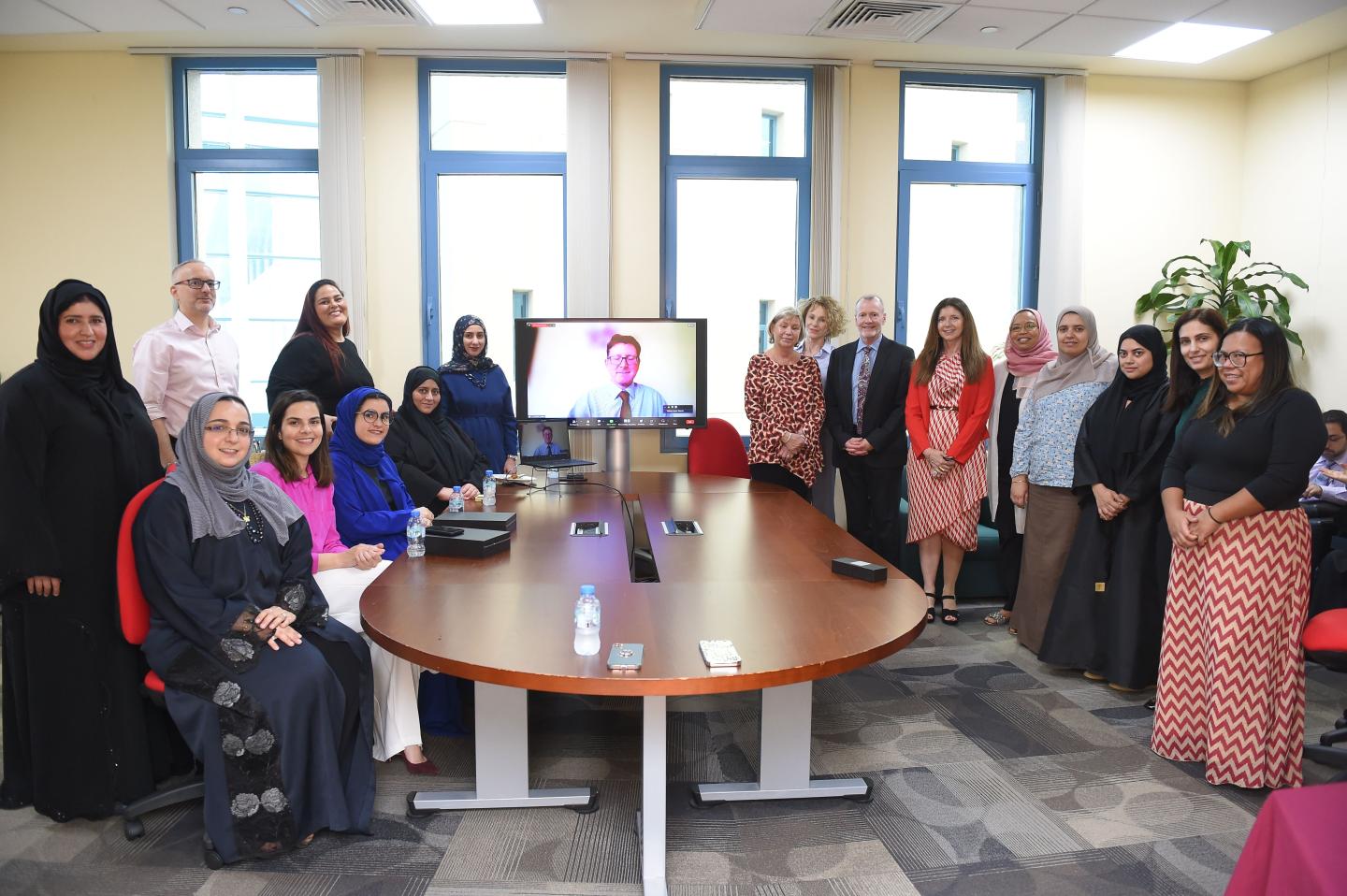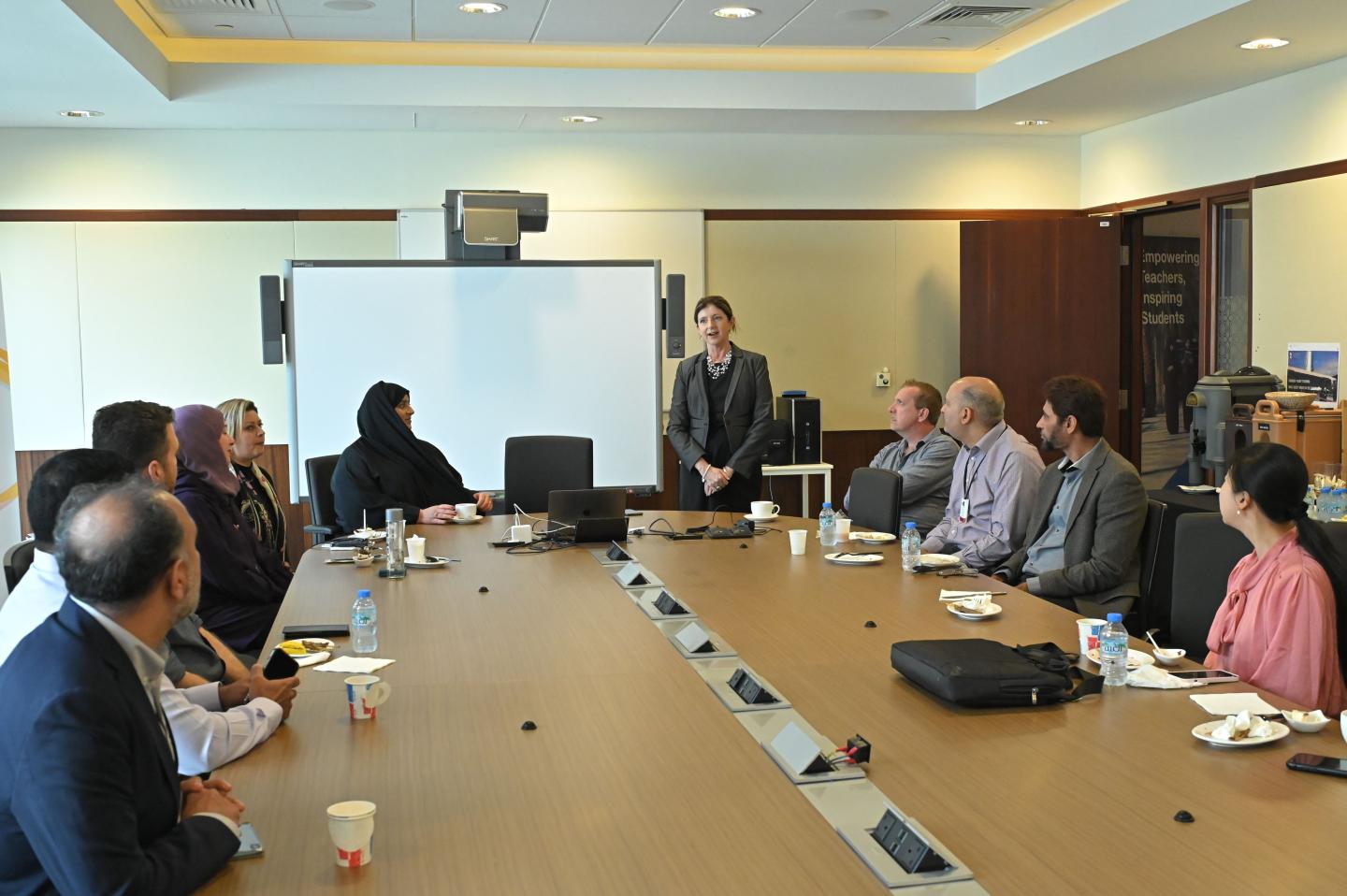“Our Fellowship programme is a huge draw for our faculty because it is a recognition of their teaching excellence with international currency.” Professor Christina Gitsaki
Zayed University in the United Arab Emirates (UAE) has a strong focus on research and teaching excellence. From its creation in 1997, it had a thriving Centre for Teaching and Learning offering training courses to help faculty deliver the best possible teaching to students.
This was superseded in 2012 when its current Centre for Educational Innovation came into being. Rather than offering one-off workshops, it began delivering extended and cohesive professional development programmes on pedagogy, educational technology and the scholarship of teaching and learning supporting faculty to design and apply classroom interventions and measure their teaching effectiveness.
In 2017 the centre was accredited by Advance HE to award faculty Fellowship status – an international certificate of teaching excellence – and it has since graduated nearly 300 Fellows.
We probably have the oldest accredited programme in the region for Fellowship level and we are delighted with the numbers of faculty who have committed to Fellowship which is underpinned by the internationally recognised Professional Standards Framework.
As an institution, we are incredibly committed to offering our academics the opportunity to become Fellows. The majority of our faculty are international and they value having an internationally recognised certification. Being academics, they always look for such international certifications that add to their professional profile. Currently, more than half of our current 550 faculty staff are Fellows – which really is an incredible achievement. Teaching excellence is highly valued in the Middle East and that is why the Advance HE Fellowship is so significant.

Our classes are not the usual auditoria filled with hundreds of students – we have small classes so faculty actually get to know the students they are teaching. That means it’s important they know how to pay attention to the needs of their students, to the way they are teaching and to the extent they are being effective in their classes. Fellowship recognises their excellence in doing this.
The international nature of Zayed University faculty is another reason Fellowship is important. Whereas the student body is very homogeneous, the faculty population is very international. Nearly everybody comes from somewhere else, so there’s a large variety of pedagogical strategies they bring with them. Consequently, the role of the CEI is to make sure every faculty deploys effective pedagogical approaches and understands the challenges of our students. In addition, we operate in a technology-rich institution, so we need to make sure they know how to use the technology effectively too.
Faculty at Zayed University are offered the opportunity to do its Fellowship programme which is free of charge to them. Our Fellowship programme is a huge draw card for our faculty, particularly given that so many come from around the world. Being able to have a recognition of their teaching excellence that has such international currency is important to them.
Zayed University’s accreditation to award Fellowships is due for renewal in a couple of years. When that happens, the CEI is planning to apply to award the Associate Fellowship too – targeting a small group of professional support staff within the institution whose work impacts closely on student learning – such as lab technicians and coaches. Every semester we have a fresh cohort of new Fellows and it is something we always celebrate. Our next one is due shortly and will be proud to graduate a further 35 new Fellows.

Kristian Rumble, Advance HE Head of Membership (Global), said, “Zayed University's long-term and strategic approach to capacity building in teaching and learning has led to a very strong position where staff and students are benefiting from a focus on teaching excellence. This has also been really important dynamic in the University’s reputation. I’m delighted that our work with the University in accreditation and fellowship has underpinned such a successful strategy.”